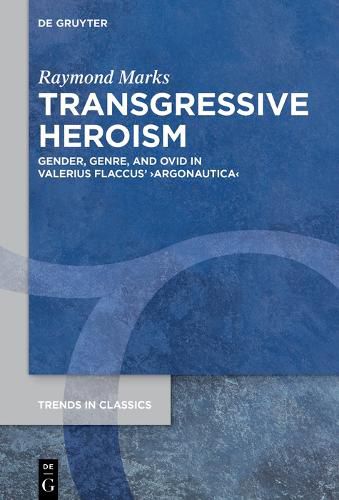Readings Newsletter
Become a Readings Member to make your shopping experience even easier.
Sign in or sign up for free!
You’re not far away from qualifying for FREE standard shipping within Australia
You’ve qualified for FREE standard shipping within Australia
The cart is loading…






Roman epic is traditionally understood to advance a masculine, martial form of heroism. In his version of the Argonaut legend, the Argonautica, however, Valerius Flaccus challenges that prevailing ethos of the genre by turning Medea, Jason's love interest in the story, into a heroic figure and Jason himself into her emasculated victim. The present study charts this plotline as it unfolds in the second half of Valerius' epic, finding its key source of inspiration in the poetry of Ovid with its tales of transgressive love, gender-bending, and unconventional heroism. Employing an extensive program of allusion to his Metamorphoses and elegiac works, Valerius transforms Medea from the innocent, vulnerable girl we see in her first appearance in the poem into a threatening, powerful, and masculine figure, who not only helps Jason fulfill his quest for the golden fleece, but eclipses him as hero in the process. Readers of this study will gain insight into Valerius' inventive reworking of the Argonaut myth and innovations within the epic genre as well as a greater appreciation for Ovid's influence on Roman epic poetry in the first century CE.
$9.00 standard shipping within Australia
FREE standard shipping within Australia for orders over $100.00
Express & International shipping calculated at checkout
Roman epic is traditionally understood to advance a masculine, martial form of heroism. In his version of the Argonaut legend, the Argonautica, however, Valerius Flaccus challenges that prevailing ethos of the genre by turning Medea, Jason's love interest in the story, into a heroic figure and Jason himself into her emasculated victim. The present study charts this plotline as it unfolds in the second half of Valerius' epic, finding its key source of inspiration in the poetry of Ovid with its tales of transgressive love, gender-bending, and unconventional heroism. Employing an extensive program of allusion to his Metamorphoses and elegiac works, Valerius transforms Medea from the innocent, vulnerable girl we see in her first appearance in the poem into a threatening, powerful, and masculine figure, who not only helps Jason fulfill his quest for the golden fleece, but eclipses him as hero in the process. Readers of this study will gain insight into Valerius' inventive reworking of the Argonaut myth and innovations within the epic genre as well as a greater appreciation for Ovid's influence on Roman epic poetry in the first century CE.